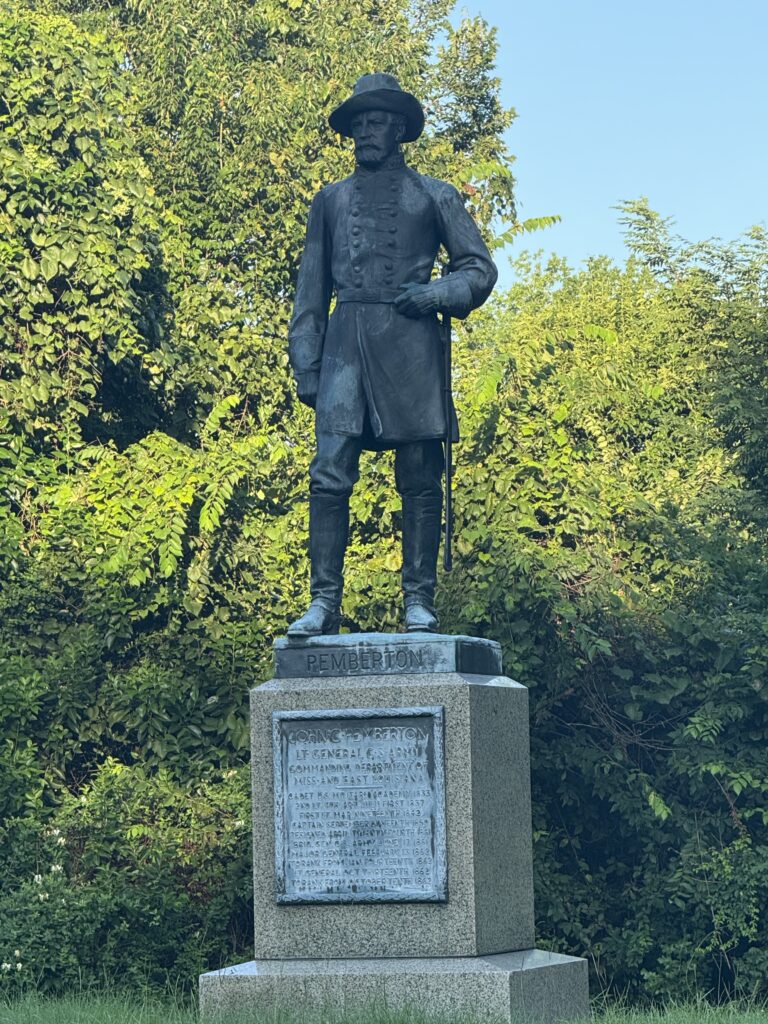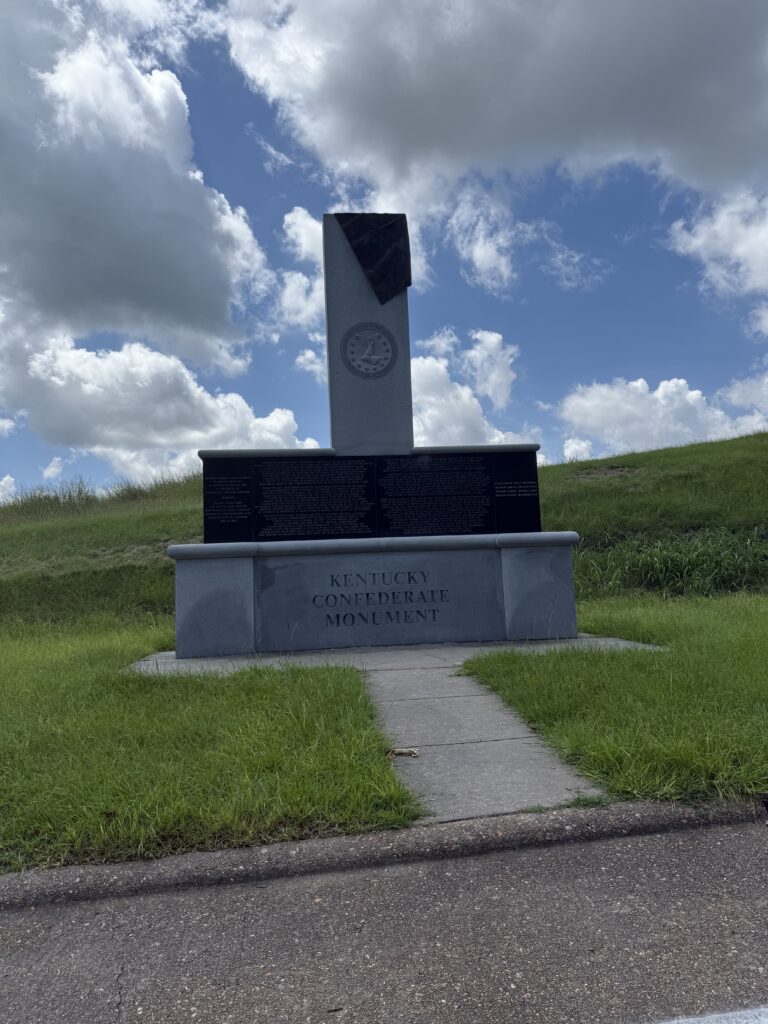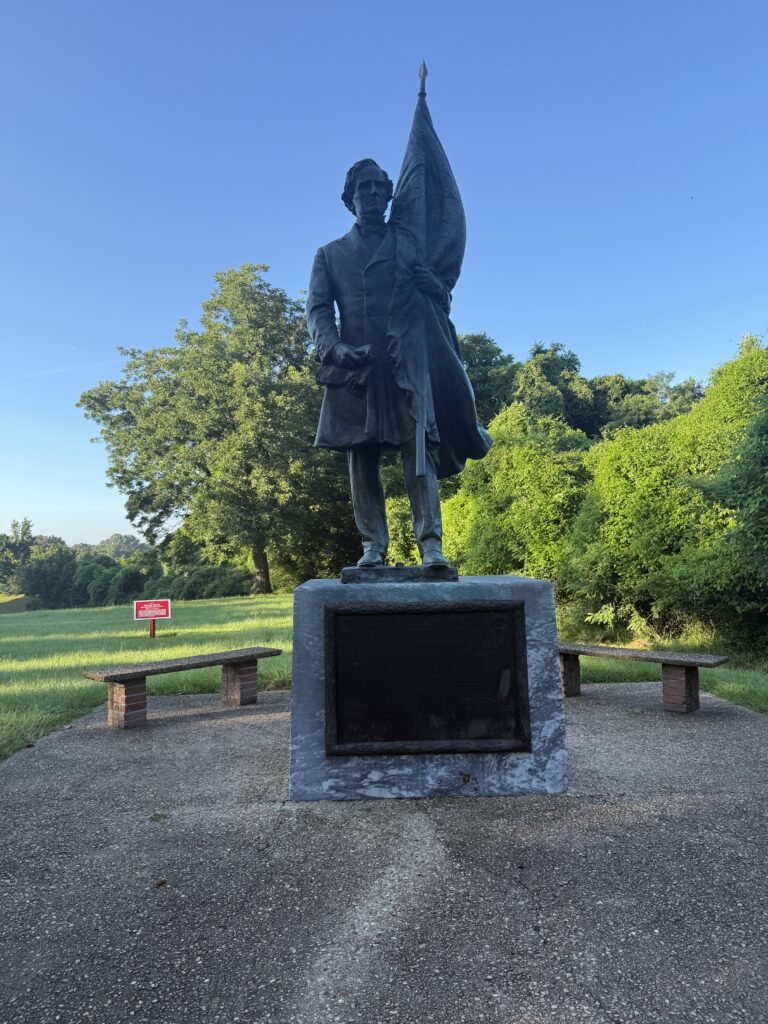
Art Jipson, University of Dayton
Vance Boelter, who allegedly shot Melissa Hortman, a Democratic Minnesota state representative, and her husband, Mark Hortman, on June 14, 2025, studied at Christ for the Nations Institute in Dallas. The group is a Bible school linked to the New Apostolic Reformation, or NAR.
My Mum had her 100th birthday in January 2025, and received her card from King Charles and Camilla. That’s an achievement in itself. We’re not a big family on Mum’s side. She has outlived all her cousins and, like me, has no siblings. But all the family who could, gathered for her birthday. Our kids, their kids and Mum’s semi-cousin, Elaine and her husband, Arthur.

Mum never changed the world, but she lived well in it. Kind and caring. She was born in 1925 in the pit village of Mapplewell, about four miles north of Barnsley. Her parents were Tommy and Annie Bennett. Tommy had survived the First World War, invalided out of the King’s Own Yorkshire Light Infantry at Passchendaele in 1917 with half his calf shot away. After a (long) recovery he came home to work at the coalface (North Gawber Colliery). Annie gave up her barmaid job at the Talbot Inn in Mapplewell when they got married in 1921.
They lived in Pitt Square, Mapplewell, with Annie’s mum, dad, and younger brother, Tom. That’s where Mum was born. Her grandfather, James Alfred Shaw, died in 1929 so she barely remembered him, but grandma Emma, lived with the Bennetts until her death in 1952.
Joan Bennett was a bright girl, winning a scholarship to Barnsley Girls’ High School, but the academic life wasn’t for her. She left school at fourteen, immediately getting a job in a grocery shop. Perhaps she should have told both the school and her parents before she did that, but it was a done deal by the time they found out.
But in 1939, the Second World War was looming.
Mum always loved dancing and can still tell stories of riding home from a dance in the next village, as a teenager, balanced on the bonnet of her friend’s dad’s milk float in the middle of a wartime blackout.
There was a young man, Leeman Poulter. He used to see her home safely from dances, and eventually they became engaged. He enlisted in the RAF and became a navigator in Lancaster bombers.
His plane was lost in a bombing raid over Germany. Mum, pretty and popular, refused to go out with anyone else. She waited until the war was over and all the prisoners had been repatriated before she let herself truly believe that he was dead.
In December 1941 Parliament passed a second National Service Act. It made all unmarried women and all childless widows between the ages of 20 and 30 liable to call-up. Before hitting twenty, she volunteered to join the NAAFI on the understanding that if she volunteered she had her choice of services, but if she waited to be called up she might end up in the army, navy or air force. In the NAAFI she moved stations a few times, working in the kitchens until finally ending up in the offices, spending part of the war in York.
After the war Mum returned home to Mapplewell, worked first at Elstones tobacconists in Barnsley, and then for Fred Ward’s wholesale fruit and veg business, also in Barnsley.
She still loved dancing. One night in early 1948 she met Tony Lockyer at a dance at the Three Cranes Hotel in Barnsley. They were married barely six months later, at first living with Tony’s mother.
By the time I came along, they had a little semi on Laithes Lane, squished between three big new housing estates.
Mum had a few years at home with me as a baby, making a bit of extra cash by sewing pretty party dresses for children, all beautifully finished and hand smocked. It used to take her about a week to make one, for which she charged the princely sum of seven shillings and sixpence. Hey, those were the days! A couple of years after I started school, Fred Ward came knocking at the door to ask her to go back to work, so with Grandma Bennett stepping in to look after me during the day, Mum went back to work full time. She worked for Fred, and then took a job as a book keeper at Davidson Beevers, a wholesale ironmongers at Town End in Barnsley. She stayed there for umpty-twiddly years (until they eventually closed down). In the meantime Dad had gone through several years of night school and professional exams, and became Personnel Manager at Hepworth and Grandage in Bradford. (They didn’t call it Human Resources in those days.)
We moved to Newmillerdam, closer to Wakefield than Barnsley, in the 1960s. In the 1970s Mum went to work in the Double Two shirt factory accounts office in Wakefield, but at weekends she did the catering for the flying club at Sherburn in Elmet where Dad was treasurer and an enthusiastic private pilot. I think it was either that or become a weekend aeroplane widow. Her apple pies were legendary.

Dad retired and gave up flying due to ill health in 1983 and Mum retired at the same time, just a couple of years before her 60th birthday. Dad died in 1988 and that’s when Mum sold up at Newmillerdam and moved to be closer to us and our (then) young children.
When Best Beloved and I were touring with Artisan, Mum used to look after our kids. At some point – I’m not sure when – she stopped babysitting and they started granny-sitting.
In her retirement, Mum took up a hobby she’d briefly had in the 1960s – painting. She painted nicely done (if a little chocolate boxy) landscapes, exhibiting at art shows and selling the occasional painting. This one is on our wall.

She was treasurer for Shepley Good Companions for a few years, and then started and ran the Monday Friends group in our village, never admitting that she was ‘old.’ In fact, even in her eighties, she wouldn’t attend the pensioners Christmas tea party at the local village hall unless it was to make sandwiches, serve teas and wash up.
She retained her ability to add up a column of figures in her head (faster and more accurately than I could do it with a calculator) well into her nineties, and prepared our accounts every year until she was about 93 or 94 when she began to show small signs of confusion. About the same time, she finally put down her paint brushes and gave away her art supplies.
Covid hit and her Alzheimers diagnosis was delayed by a couple of years because Memory Clinic appointments were impossible to get. But eventually she was diagnosed with late onset Alzheimers and got medication which certainly helped. She has good days and bad days, but retains her pleasant disposition. She did catch Covid, and ended up in hospital with Covid pneumonia and sepsis, but she’d had her vaccinations by then, and survived all that at the age of 97. She can’t see very well, and she can’t hear very well, but she reads on Kindle (because I can make the print bigger for her). And she sleeps a lot – but when you get to 100 years old I reckon you’ve earned the right to doze for as long as you like.
She’s lived through a century which has seen immense change. From gas lighting and the tin bath in front of the fire, through a world war, firebombs and evacuees, valve radios changing to transistors, the swinging sixties, man landing on the moon, Thatcher and the miners’ strike, computers the size of a house with a 1k capacity. And now we have flat screen TVs, electric cars, microwave ovens, surveillance cameras, and way more computing power in a mobile phone than NASA had when they sent rockets into space
After living in her own home until the age of 100, she’s now (after a short spell in hospital, being discharged to a nursing home for four weeks, after which we’ll know if she’s fitr to come home (with a care package in place) or whether she might have to become a permanent resident. As one might expect, at 100 she’s frail, but determined.
What a century. What a wild ride!

Newsmax host Greg Kelly took a swing and a miss while discussing the files of notorious pedophile Jeffrey Epstein, who, according to the Trump administration, committed suicide during Trump's first term. According to Kelly, Trump isn't complicit in this scandal because he was a longtime buddy of Epstein's. Oh, and he appointed Attorney General Pam Bondi, so case closed! But that's the cover-up, Greg.
Bondi said in February that the "client list" of disgraced financier and convicted sex offender Jeffrey Epstein is on her desk, but that's being walked back now.
"Oh, they love trying to say this, MAGA is coming apart because of this, that, and the other thing," Kelly said, Media Matters reports.
"This time it's Jeffrey Epstein," he continued. "A couple of weeks ago, it was about whether or not we should bomb Iran, right? It's blowing up — the Iran conflict is sparking a civil war. Oh my goodness. Eh, kind of, sort of, but not really. Kind of, sort of, but not really."
"I'm going to just have to defer to President Trump on this thing," he insisted. "He actually knows Jeffrey Epstein, or knew him. He appointed Pam Bondi. He knows all of the players. He knows these lawyers. I'm going to take his word for it. And I know right now in the podcracy, some of these guys — forgive me, I like them."
Recent Short SF/F Fiction Reviews
by Rich Horton
Here I'm taking a look at some recent SF or Fantasy short stories I read recently. I'll begin by helping celebrate the 50th outing of Lady Churchill's Rosebud Wristlet -- this remarkable magazine, started in 1996, is still in print, in the traditional "zine" format -- saddle-stapled and all; the issues are very attractive to boot. The editors are Gavin Grant and Kelly Link, and the contents are an eclectic mix of fiction, articles (often about cooking!) and poetry, with the fiction loosely in the SF/Fantasy zone but with no boundaries.Lady Churchill's Rosebud Wristlet celebrates its 50th issue with a strong issue, including S. Woodson's "Dog in the Garden", about a woman in a near future highly repressive corporatized environment who follows a mysterious dog into a new world, full of magic. It's sweet -- the nearly but not quite utopian other world is lovingly portrayed. I did feel that things were a good bit too easy for its main character. Jessy Randall's "Remedial Kissing Class" is also sweet, with the narrator finding love by more or less flouting the title lessons. "White Band", by Guan Un, is a nicely written vignette, with the main character a bit upset that their friend is marrying the moon, and "Graceless Creatures", by Shaun Cammack, is pure horror, about an exhibit of what seem sirens, which can be visited by people with headphones so they won't hear the song. Dark and effectively ugly. And Marie Vibbert's "The Summer Kids and the Gemini" has Hannah ready to go to college making one last trip to the amusement park (Cedar Point, in Sandusky, Ohio), only to meet some intriguing young people who spirit her away, to what turns out to be life of endless literal "amusement", and the rides can trasnport one through time to different parks in different eras. Vibbert sharply interrogates the real consequences of such an existence, and Hannah is smart enough to resist it -- even realizing that her mother had once met the same kids and regretted not going off with them.
Those are all fine stories -- Vibbert's being the best, I think -- but the prize story is "The Path to Pembroke", by L. H. Adams. It's set in North Carolina in a climate-ruined future, with serial outbreaks of different plagues a prime risk. Quint is a young man living among a small group of people trying to survive in the woods -- but always facing the risk of wanderers who might carry a new disease. When one such group comes by, Quint is delegated to walk to the Pembroke Biological Research Station, to warn them of a potential new disease and perhaps get some medicine. Quint's trip is terrifying -- he has gotten sick himself, and he is chased by a group of what seem a sort of zombies, and the weather is harsh. The narrative is a powerfully tense story, basically a chase. That's nice enough but nothing special, but the story is elevated to another level by the narrator itself -- at first seeming just an authorial device, allowing us to follow Quint and also learning something of his and his family's past -- but there is a kicker of a sting in the story's tail, combined with some neat and scary revelations of the nature of one of the diseases threatening people in this future.
The next two stories were recommended to me by Will Waller, and I thank him for the pointer. The first is from the May-June issue of Uncanny, the multiple Hugo-winning online magazine edited by Lynne and Michael Damian Thomas.
One common trick of fantasy stories is to use the fantastical element as a very literal, reified, metaphor for the real life problems of the characters. I sometimes find this too artificial, too much a mere trick, and even unnecessary. But done well it can be very effective, and I though this strategy worked brilliantly in Anjali Sachdeva's "Vivisection". Eleanor has learned to hide vulnerable parts of her body from her partner Severine. Her heart is in the kitchen, her liver in a closet, and so on. We quickly realize that Severine is a pretty awful woman -- powerful, attractive, and also abusive and a cheater. And Eleanor copes -- by hiding parts of herself. And by nurturing a deer -- a hart -- from a fawn to adulthood -- not a pet, but a sort of a near friend by now.
The story sets up the situation and lets it play out -- Eleanor's increasing desperation in trying both to please her lover and not to be hurt by her, Severine's inevitable discovery of Eleanor's hidden body parts, the eventual crisis. This is a story that could have been told straight, with no fantastical elements -- but the literalized metaphor in this case elevates it, makes every step more powerful. I really enjoyed this.
Now to GigaNotoSaurus, a webzine that has been publishing roughly a story a month since late 2010, when Ann Leckie founded it. The current editor is LaShawn M. Wanak. GigaNotoSaurus tries to publish longer stories -- their stated length is between 5000 and 25000 words. Sage Tyrtle's story "The Starter Family", from June, is about 10,000 words long. It really excited me, as it presents a powerfully affecting (and scary, and creepy) idea that I don't think I've ever seen before. It did remind me vaguely of Ian R. MacLeod's excellent 1992 story "Grownups".
Charles narrates the story, beginning as he is eleven years old. His school is all boys, and they don't know anything about girls, except for their mothers. At turning eleven, they take the oath never to reveal the truths they will learn about boys and girls, men and women, and Starter Families. Charles becomes an adult, and is allowed to choose his Starter Wife, and they are happy together. Soon they choose a Starter Baby, whom they love. But some ominous currents are churning. Charles knows what awaits them in the future -- and he finds he can't deal with it.
This story is both really wrenching in presenting its central dilemma, and intriguing in the way it satirizes '50s-style families, conformity in general, the tendency to juvenilize women and straitjacket men. It really packs a punch, and it does not pull that punch at the conclusion.

I have long been interested in the Battle of Vicksburg.
On the one hand, the Vicksburg campaign is one of the most well-designed, well-executed campaigns of the Civil War. The details of the campaign were well known even at the time, and even cursory investigation of those details shows Grant to be an outstanding tactical and operational commander. He appropriately assesses the importance of the objective and pursues a variety of innovative techniques for bringing Vicksburg under siege. Most of these fail, but Grant is not daunted and does not allow his men or his senior lieutenants to lose faith. He responds to each failure with the dogged determination that there Must Be a Way, and then he finds that way. He accepts casualties but does not recklessly spend the lives of his men. His opposite numbers are competent if not excellent, yet he systematically manages to curtail their options. It tells you all you need to know about post-war historiography that pop military historians somehow managed to forget the Grant of the Vicksburg campaign in preference for the Butcher of the Overland Campaign, when really the contrast between the two should demonstrate Grant’s flexibility as a commander, as well as the very real tactical proficiency of the commander of the Army of Northern Virginia.
On the other hand, the strategic and political significance of Vicksburg is immense. The Mississippi River System is the most important geographic-socioeconomic fact of the North American continent. Full control of the system grants immense military latitude and immense economic benefit, to the extent that I’m still sometimes a bit surprised that both sides didn’t commit more resources to its capture and control. In an alternative reality where Gettysburg goes differently yet Vicksburg remains the same, the problem for the Confederacy is existential. The Trans-Mississippi Confederacy effectively becomes non-viable after the Union takes full control of the river; even if Lincoln was deterred from making another effort at Richmond, the western Confederate states were basically indefensible. Possibly worse, control of the Mississippi introduced an escape valve for the huge portion of the Confederacy’s population that was in servitude. The viable Confederacy shrinks to Alabama, Florida, Georgia, east Tennessee (not friendly to Richmond), the Carolinas, and Virginia, and most of those areas are under dire threat from Union naval forces.
Anyway, it’s a pretty interesting battle. This week I am free of parental and work responsibilities, so I hopped in the car and drove the nine hours to Vicksburg, inaugurating what I’m going to call the US Grant Victory Tour. Vicksburg is a charming little town in all of the ways you expect a small Mississippi town to be charming. This morning I hit the Vicksburg National Military Park at sunup (it will surprise no one to learn that it’s fucking hot in Mississippi in July), and I was not disappointed. Some pics:






I’ll pause briefly here to note that while I generally hate Confederate iconography, I have no problem whatsoever with Confederate monuments on Civil War battlefields. These spaces belong, in an important sense, to the men who fought and died on them and to the families that supported them. If Mississippi wants to erect a monument to those who died on her behalf at a place like Vicksburg, I have no objection.
This fucker, however, should have every statue expunged from history.

Unfortunately, Grant Circle is off limits because of weather damage, so I couldn’t get a pic of the statue of Grant.
I spent the rest of the morning hitting a couple museums in Vicksburg. The Old Courthouse Museum is perfectly adequate and exactly what you would expect of a Civil War museum in a small Southern town; among other bits of Confederate nostalgia there’s an exhibit dedicated to largely imaginary Black Confederates. However, in a room set aside for general Vicksburg history I found this unexpected sight:

The history here is fascinating; quoting Wikipedia because otherwise I’d just be paraphrasing Wikipedia:
When the town of Vicksburg was incorporated in 1825, with a population of 3,000, there were approximately twenty Jewish settlers, who had immigrated from Bavaria, Prussia, and Alsace–Lorraine.[1][6] The early Jewish population of men and women were business owners, community leaders, physicians, lawyers, and teachers in the city of Vicksburg.[1] In 1862, fifty Jewish families came together and formed the Hebrew Benevolent Congregation Anshe Chesed in Vicksburg, and received a charter from the state.[6]
In the 1866 Vicksburg city directory, ninety Jewish families owned thirty-five businesses.[1] By 1905, there were 659 Jewish people in the city of Vicksburg, which was the peak population (4.44% of the city population).[1] As of 2014, only some twenty Jewish people were left in Vicksburg; this loss of Jewish population was due to many factors[1] and occurred statewide.
The history of Jews in the South is weird and the history of Ashkenazi Jews in the South is even weirder, but there you go.
I also hit the Vicksburg Civil War Museum where the experience was… unexpected. The proprietor is a middle-aged Black fella who looked me up and down when I said I wanted to enter and asked “Where you from? You know much about the Civil War?” After I paid my dues he instructed me to begin at the Wall of Secession Declarations, beginning with South Carolina. He had highlighted all of the parts of these declarations that mentioned slavery, which were of course substantial and absolutely damning of arguments that the war was about anything but slavery. I was then guided to a reconstructed slave cabin in which the voices of Black slaves were played on loop. The rest of the collection was absolutely fantastic and supported the general ideological thrust of the museum. As I left, dude was interrogating a bewildered family on whether or not they considered Robert E. Lee to be a traitor. Good times.
I am now in Savannah, TN. Tomorrow’s agenda is ambitious; Shiloh, then Fort Donelson, then Belmont. Planning to start things early.
The post Vicksburg appeared first on Lawyers, Guns & Money.
Steve Vladeck has a useful chart summarizing the Court’s use of the shadow docket under Trump II:

As we discussed yesterday, Trump is 15-for-15 since April 4, with only three majority opinions and 7 with literally not one word of juficatory reasoning. And we’re not talking about minor issues here, but stuff like Trump trying to unilaterally abolish the Department of Education and nullify the Fourteenth Amendment.
As Quinta Jurecic observes, the lack of reasoning is in itself an authoritarian show of power:
Yesterday—almost exactly a week after the Court lifted a lower court’s block on Trump’s plans to fire thousands of federal employees—a majority of the justices decided to give the president the go-ahead for a different set of mass layoffs. Last week, the Court provided a handful of sentences that vaguely gestured at why it might have allowed the administration to move forward. This week, it offered nothing at all. There’s something taunting, almost bullying, about this lack of reasoning, as if the conservative supermajority is saying to the country: You don’t even deserve an explanation.
[…]
Given the potentially devastating effects of the Supreme Court’s ruling on congressionally mandated programs, it’s all the more galling that the majority didn’t bother to provide even a cursory explanation of its thinking. This terseness has become common as the Court has scaled up its use of emergency rulings—rulings that, it’s hard not to notice, have a striking tendency to align with the Trump administration’s priorities. Stephen I. Vladeck, a law professor at Georgetown University and an authority on the shadow docket, tallied the Education Department order as the 15th since early April in which the Court has granted Trump emergency relief, and the seventh in which the justices have provided not a word of explanation. (Until recently, the shadow docket was used far more rarely, and only for truly urgent matters.) Do the conservative justices feel that the president really doeshave the legal authority to destroy a Cabinet department on his own? Or perhaps they believe that the plaintiffs lacked the ability to bring the case at all in federal court? Maybe the reason was something else altogether. There’s no way to know.
This silence is damaging, both to the legitimacy of the Court and to the rule of law. The judiciary is a branch of government that is meant to provide reasons for its actions—to explain, both to litigants and to the public, why judges have done what they have done. This is part of what distinguishes law from the raw exercise of power, and what anchors the courts as a component of a democratic system rather than setting them apart as unaccountable sages. With a written opinion, people can evaluate the justices’ reasoning for themselves. Without it, they are left to puzzle over the Court’s thinking like ancients struggling to decipher the wrath of gods in the scattering of entrails.
When John Roberts’s predecessor and spiritual mentor Roger Taney was infuriated because of the devastating nature of the dissents in Dred Scott, his unethical response was to spend weeks after the ruling was presented orally expanding and revising his opinions without showing the revisions to the other justices. (Taney’s misbehavior compelled Benjamin Curtis, one of the two dissenters, to resign before the end of the year at age 48.) The only reason the Supreme Court’s current reactionary bloc wouldn’t do this is that they’re way too lazy and contemptuous of the very idea of public accountability, despite having four full-time clerks do to the actual writing.
The post A Court without law appeared first on Lawyers, Guns & Money.
I may have misunderstood. I just checked the PVR's "Guide" function to look ahead to Thursday night. I saw short blurbs for "Hegemony II" and "Wedding Bell Blues".
I'll know for sure on Thursday night, it seems.

It’s the party of main street not Wall Street now:
The lights are on at the Consumer Financial Protection Bureau across the street from the White House, and employees still get paid. But, in practice, the bureau has been mostly inoperable for nearly six months. CFPB employees say they essentially spend the workday sitting on their hands, forbidden from doing any work by directive from the White House.
The bureau is supposed to be helping oversee the nation’s banks and financial services companies and taking enforcement action in case of wrongdoing. Instead, the situation is Kafkaesque: the main function seems to be undoing the rulemaking and law enforcement work that was done under previous administrations, including in President Donald Trump’s first term.
American consumers can no longer look to the bureau for help when it comes to their checking account, credit card, payday loan, auto loan or mortgage. Trump has neutered the watchdog, employees say, the culmination of a yearslong effort by Republicans who felt the agency often went overboard in its efforts.
Here’s some examples of the “freedom” consumers now enjoy under the effectively abolished CFPB:
Sensing blood in the water, companies that committed wrongdoing, or had open investigations, have lobbied the bureau and the White House for their punishments to be rescinded. Employees at the bureau say the only time their workdays get remotely busy these days is when the White House instructs them to begin rescinding one of these punishments. It often involves “reverse-engineering” reasons why the bureau, which investigated and found that these companies did harm to consumers, now no longer believes that happened.
In 2024, Navy Federal Credit Union agreed to settle claims that it illegally charged overdraft fees to its members. Among the customers at the $180 billion financial institution are Navy service men and women, and veterans. Vought canceled the settlement last month, and Navy Federal will no longer have to pay back $80 million in fees. A spokesman for Navy Federal declined to comment on whether the credit union planned to return those funds to its members, as it originally said it would.
In 2023, the auto financing arm of Toyota was found to be illegally bundling products onto car buyers’ auto loans, refusing to cancel those products and doing harm to customers’ credit scores. Toyota was ordered to refund $48 million to harmed customers. That settlement was rescinded in mid-May. A spokesman for Toyota declined to say whether customers would be reimbursed.
“Companies are lining up to get out of repaying harmed customers,” said Eric Halperin, former enforcement director at the bureau, who resigned earlier this year.
In fairness, nobody could have predicted that “the freedom to be defraud people with impunity” would be a high priority for an administration headed by Donald Trump.
The post The new Republican populism appeared first on Lawyers, Guns & Money.

While on a trip to Disneyland in California on Saturday with his wife and children, Vice President JD Vance rode the theme park’s ride that’s most associated with racial reconciliation, despite Vance railing for years against “woke” culture.
Vance was caught on video jogging toward his children—and was mocked for not having an “alpha male” running style despite the right’s obsession with phony masculinity—and riding “Tiana’s Bayou Adventure,” which opened in November 2024.

I'd encourage anyone interested in this sort of thing to read the entire piece, or follow the thread by Roger Sollenberger. There are some mind-blowing details on how Cory Mills operates. And if you're wondering what a $20,000 per month penthouse in Washington, DC looks like, click on this link.
Cory Mills' financial filings say he's worth at least $24 million, yet somehow never pays his bills, or settles his ongoing divorce, now in its third year of wrangling. (Mills is pictured above with his much younger girlfriend, Sarah Raviani.)
Source: Florida Politics
Court records show a landlord has filed papers to evict U.S. Rep. Cory Mills from his Washington apartment.
Bozzuto Management Company alleged in a legal complaint that the New Smyrna Beach Republican owes more than $85,000 in rent dating back to March. The complaint was filed in the Superior Court of the District of Columbia on Wednesday last week.
The eviction was first reported by independent journalist Roger Sollenberger. In a subsequent post, Mills blamed the missing payments on his online payment link being broken, and provided records showing he raised the issue with his landlord.






